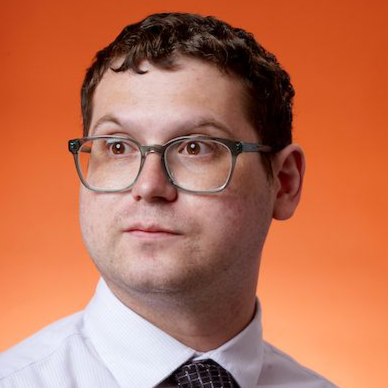Brooks Harlan has always been fascinated with electronics.
When he started playing music, Harlan said, he was the person who could fix everything “because we were poor kids in bands who didn’t have nice gear.”
In 2000, Harlan moved to Maryland and worked as a recording engineer. But he wasn’t happy with the guitar sounds he was capturing.
He said he slowly realized it did not matter whether he was a good recording engineer if the gear sounded terrible. So he started reading books from the 1940s, 1950s and 1960s, along with old manuals from the U.S. Navy, and educating himself about tube amplifiers.
“The source needs to sound great to record something great,” Harlan said. “That’s why Ray Charles sounds fantastic, because he’s fantastic.”
Harlan’s name circulated in the community, he said, and people started bringing him amps to repair. Eventually, Harlan said, the work outgrew his bedroom.
Read More
Since Big Crunch Amplifier Service & Design opened in 2008, Harlan said, “we haven’t had a single day that we haven’t been busy.”
His business is on East Biddle Street near Barclay Street in Johnston Square, and its employees have worked on gear belonging to bands such as Future Islands, Beach House and Clutch. The shop is in the same building as the Magpie Cage Recording Studio, the base of operations for J. Robbins, who has led bands including Jawbox.
Big Crunch gets its name from a theory about how the universe could end, which Harlan learned about in a physics class at Texas Tech University. (Plus, there’s a Bad Religion song called “Big Bang” that mentions the idea.)
Harlan, 49, of Waverly, is the owner and a repair technician at Big Crunch, and Shawna Potter, 43, of Waverly, serves as the manager and a repair technician. They’re also co-founders of the Baltimore hardcore band War On Women.
Was there a moment when you realized that repairing amps could be a business?
Harlan: A couple things sort of came together. I was frustrated with studio work. And, honestly, there was a night that I slept on the floor of my bedroom because I had amplifier parts all over my bed, and I was too tired to get them all off so I could sleep. That was a pretty clear moment where I was like, “Maybe I should do this somewhere else.”
Also, the problem of having your business at home is you can never leave your business. And so you’re always working.
What would surprise people the most about your business?
Potter: It’s not as fun and glamorous as you would think. It’s a repair shop, you know?
Harlan: We’ve met a lot of cool people, but it’s not like you get to hang out. They’re bringing you something, and if you don’t fix it, their show is a disaster tonight and it’s your fault. That’s stressful.
You mentioned that there hasn’t been a slow day since you opened. I guess I’m sort of surprised.
Harlan: I think I know what you’re asking. It’s like, “How does a shop that specializes in technology from the 1950s survive?”
The answer is that the sound of rock ’n’ roll that you hear on records, a huge part of that sound is a tube amplifier. And, no matter how far you go into the future, if you’re playing rock ’n’ roll, that’s part of the sound.
Now they’re making sort of digital emulators and fake amps and stuff. But they’re all trying to emulate a tube amp, right? And so the easiest way to achieve that sound is to have a tube amp.
What percentage of your sales is repairing gear vs. building amps?
Harlan: Our bread and butter is definitely repair work. I kind of don’t have any interest in being an amp company where I build 25 of one model and try and sell it. That’s not interesting to me, and it sounds like a lot of money tied up in something that’s hard to sell.
It’s probably 85% repair work, and the rest is building.
How do you balance running the shop with your other roles, including as touring musicians?
Potter: That’s one of the reasons why we have this business is so that we have the freedom to go on tour. We’re our own bosses. We set the schedule. We can just close if we want.
It is something to be balanced and managed to make sure that we’re getting people their stuff in the right amount of time. We’ll work like crazy before a tour, and work like crazy when we get back, so we can leave and do our thing and play music, which we love to do.
I’m officially an intimacy coordinator. And I would not have had the ability to train to do that and take jobs and travel for that work if I had some other job.
Is there anything else that I didn’t bring up that you felt was important to mention?
Potter: It’s cool to be so productive, to work with your hands. To have something come in that is not working, and then you use your skills and knowledge and time to get it up and running. And then it sounds great and you give it to the customer and they’re happy.
A lot of my other work feels like my job is emails, no matter what I’m doing. And so to actually be on the bench and working with my hands is something that feels really good.
This interview has been edited for clarity and concision.




Comments
Welcome to The Banner's subscriber-only commenting community. Please review our community guidelines.